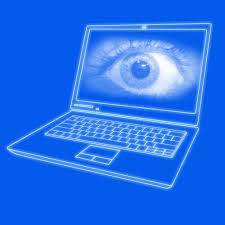Distance learning ushered in huge market opportunities for virtual proctoring businesses. These offered a method of watching students take on-line tests and making sure they don't cheat. It sems like an elegant solution--except that the programs stink.
Take Proctorio, one of the big names in student test surveillance. They impose requirements that are a burden on poorer students, and their "machine learning and advanced facial detection technologies" work badly enough to cause student uprisings. And they play hardball; after trying to squelch a student twitter beef against them, they sued an instructor for posting videos about the company even though the videos were available on youtube.
Virtual monitoring has been one more example of not-ready-for-primetime AI, creating numerous problems for the students who are often forced to use it, from privacy violations to triggering cheating alerts for minor behavior like looking away from the camera (and heaven help the student who needs to pee while taking the test). Also, as is not unusual with facial recognition software, it dopesn't always do well with Black faces. It has been an unholy mess.
If you want to have the experience, YR Media, a "national networ4k of young journalists and artists" has whipped up Surveillance U, a virtual proctor simulator, plus an assortment of demonstrations of how a virtual student can be nailed for cheating. You can give it a try (spoiler alert--you're a cheater) and see some of what students have been complaining about.
There's no doubt that one of the challenges of distance learning is distance cheating. But it continues to be clear that virtual proctoring is not the answer.


No comments:
Post a Comment